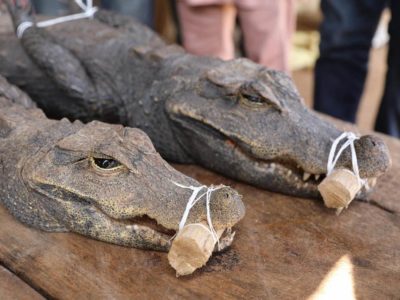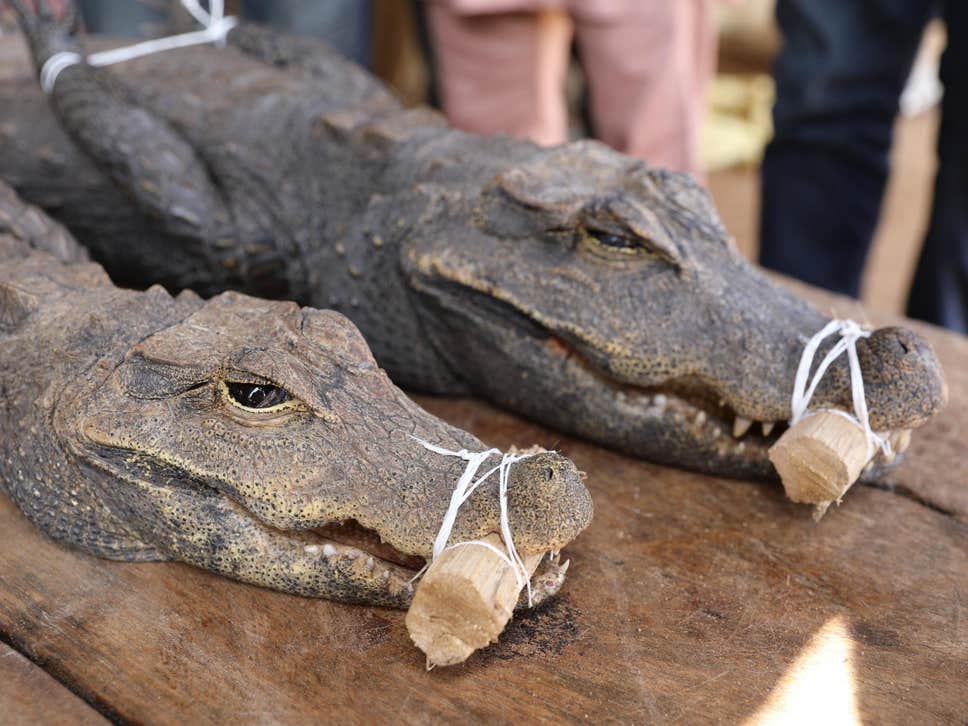




In the wake of the Covid-19 global pandemic, addressing the illegal wildlife trade has been thrust into the spotlight of public concern. Global calls have been intensifying to effectively end the illegal wildlife trade and close live wildlife market sales.
At the just-concluded China’s National People’s Congress (NPC), Chinese Premier Li Keqiang in his work report highlighted the need to severely punish the illegal killing or trade of wildlife, and protect key ecosystems to further advance establishing an eco-civilization.
China officially banned all consumption of wildlife as food temporarily through a February 24 decision. In recent weeks over 10 provinces and municipalities have issued full and permanent bans on consuming wildlife as food including Beijing, Guangdong, Hubei, Hunan, Fujian, Tianjin and Shanxi.
The news out of the NPC shows an emphasis on wildlife protection at the highest levels of government, key to ending this trade. “This is crucial to help issue better regulations, strengthen enforcement, and increase public awareness. All needed to effectively shut down the illegal wildlife trade,” said Steve Blake of WildAid. “We applaud these measures and look forward to continued improvements.”
The illegal wildlife trade is not just a problem of wildlife protection or animal welfare. It also threatens biodiversity, the global economy, and public health. When wildlife is sold alive in markets alongside other species that are often stressed, malnourished, and dehydrated, their immune systems are weakened raising the risk of transmitting zoonotic disease to humans.
WildAid sees the next steps that could be taken to avoid future pandemics as firstly ending all wildlife market sales and greatly reducing the list of wildlife that is legal to be consumed. Penalties and sentencing for wildlife crime should also see increases in severity. As China is making significant improvements to laws managing wildlife, other countries with high rates of wildlife consumption should also follow China’s lead in permanently banning wildlife sales. To effectively end illegal wildlife consumption, there needs to be not only better regulations and stronger enforcement, but also increased public awareness to end the demand for these products.
“These steps are only the beginning of what we need to do,” notes Blake. “To significantly improve wildlife conservation and reduce the risk of zoonotic disease, we really need to reevaluate our whole relationship with nature and wildlife.”
Stay in touch and get the latest WildAid updates.
SIGN UPAbout WildAid
WildAid is a non-profit organization with a mission to protect wildlife from illegal trade and other imminent threats. While most wildlife conservation groups focus on protecting animals from poaching, WildAid primarily works to reduce global consumption of wildlife products such as elephant ivory, rhino horn and shark fin soup. With an unrivaled portfolio of celebrity ambassadors and a global network of media partners, WildAid leverages more than $308 million in annual pro-bono media support with a simple message: When the Buying Stops, the Killing Can Too.
Journalists on deadline may email communications@wildaid.org